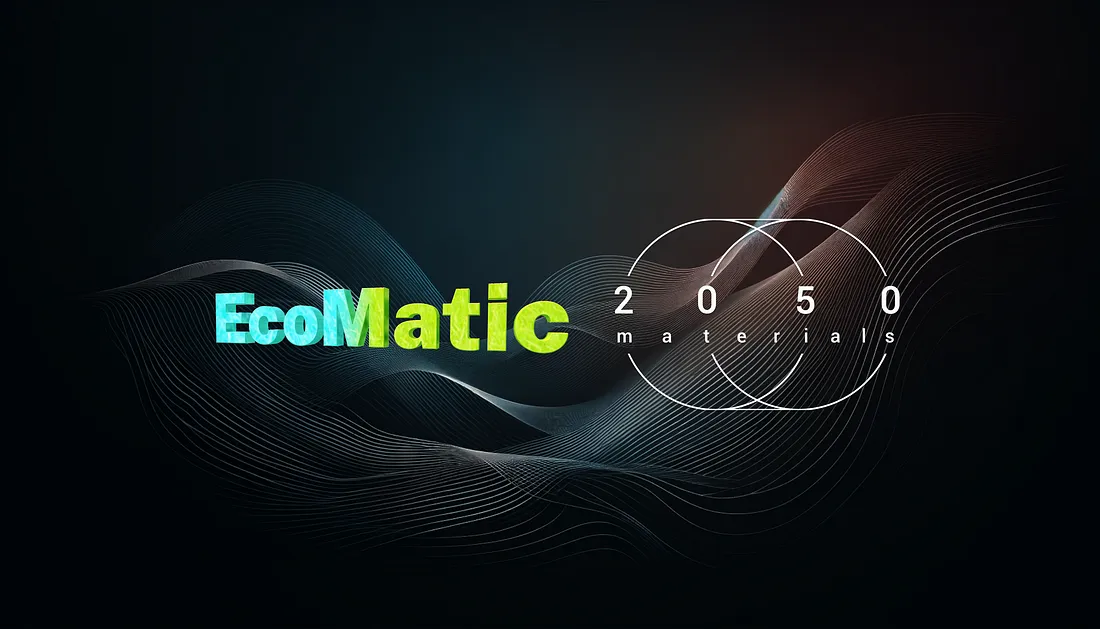Give the client tools — Integrating 2050 Materials API with VIKTOR for Early Stage Building Design
In the realm of architecture and construction, the push towards sustainability is more crucial than ever. With climate change posing a significant threat to our planet, the construction industry is under increasing pressure to reduce its carbon footprint. This is where innovative tools like VIKTOR and 2050 Materials come into play, revolutionizing the way we approach sustainable construction from the earliest stages of design.

What happens if you take a powerful low-code platform and 2050 Materials API?
Introducing VIKTOR
VIKTOR is a cutting-edge platform that empowers engineers and architects to create and share Python applications without needing extensive programming knowledge. By facilitating the development of professional web apps using Python, VIKTOR enables specialists to automate workflows, enhance project insights through interactive visualizations, and streamline operations. This platform is particularly beneficial in the conceptual and feasibility stages of building design, where quick, data-driven decisions are essential.
2050 Materials: Pioneering Sustainable Construction
2050 Materials is at the forefront of sustainable construction, offering a comprehensive database of climate data related to building materials. With an API-first approach, 2050 Materials enables seamless integration of sustainability data into digital design processes. This allows for real-time embodied impact calculations, providing architects, engineers, and designers with the insights needed to make environmentally conscious decisions from the get-go.
A Revolutionary Application: Visualizing Sustainability in Design
Leveraging the capabilities of VIKTOR, a 3D application has been developed in a couple of hours to visualize buildings in 3D during the conceptual or feasibility stage.
This app (see demo below) integrates the 2050 Materials API, calculating embodied carbon emissions based on various parameters known early in the design process, such as typology, area, and glazing ratio.
Available open source, this tool represents a significant step forward in sustainable design, making it accessible to anyone with an API key from 2050 Materials.


The Importance of Early Stage Tools in Sustainable Design
Early-stage design tools are crucial in the fight against climate change. They allow architects and engineers to assess the environmental impact of their designs from the very beginning, enabling them to make informed decisions that align with sustainability goals. By integrating tools like the VIKTOR-powered app with 2050 Materials API, the industry can move towards more sustainable practices, reducing the carbon footprint of new constructions before they are even built.
Our Call to Action: Integrate Sustainability into Your Brief-creation Process
The integration of sustainability data into computational design tools is not just beneficial; it’s necessary for a sustainable future. We encourage developers, architects, and engineers to explore the possibilities offered by 2050 Materials APIs. By leveraging crucial data into computational platforms and tools, you can contribute to the creation of environmentally responsible designs and help pave the way for a more sustainable construction industry.
For more information on integrating 2050 Materials API into your projects, visit docs.2050-materials.com. To learn more about 2050 Materials and our mission, head to 2050-materials.com.
And to start creating with VIKTOR, visit their website at viktor.ai.
Related articles

How Implenia Uses 2050 Materials for Early Carbon Decisions
Implenia, Switzerland’s largest construction and real estate company, is setting a new standard for low-carbon building by using the 2050 Materials platform during early design stages. For the first time, embodied carbon benchmarks were applied as a formal evaluation criterion in architecture competitions. By integrating real-time carbon analysis with Swiss standards like KBOB and SIA 2032, Implenia was able to make transparent, cost-effective carbon comparisons across design proposals—well before execution. The result: faster decisions, higher sustainability compliance, and a repeatable method for future low-carbon projects.
Read more
LCA at Herzog & de Meuron: Building an Integrated Digital Workflow
Custom LCA Tools for Seamless Integration.
Read more
EcoMatic Leverages 2050 Materials to Integrate Carbon Data into AI-Driven Material Creation
EcoMatic combines cutting-edge Stable Diffusion technology with real-time carbon data from the 2050 Materials API, enabling architects, engineers, and designers to streamline workflows while embedding sustainability at the core of every project.
Read more